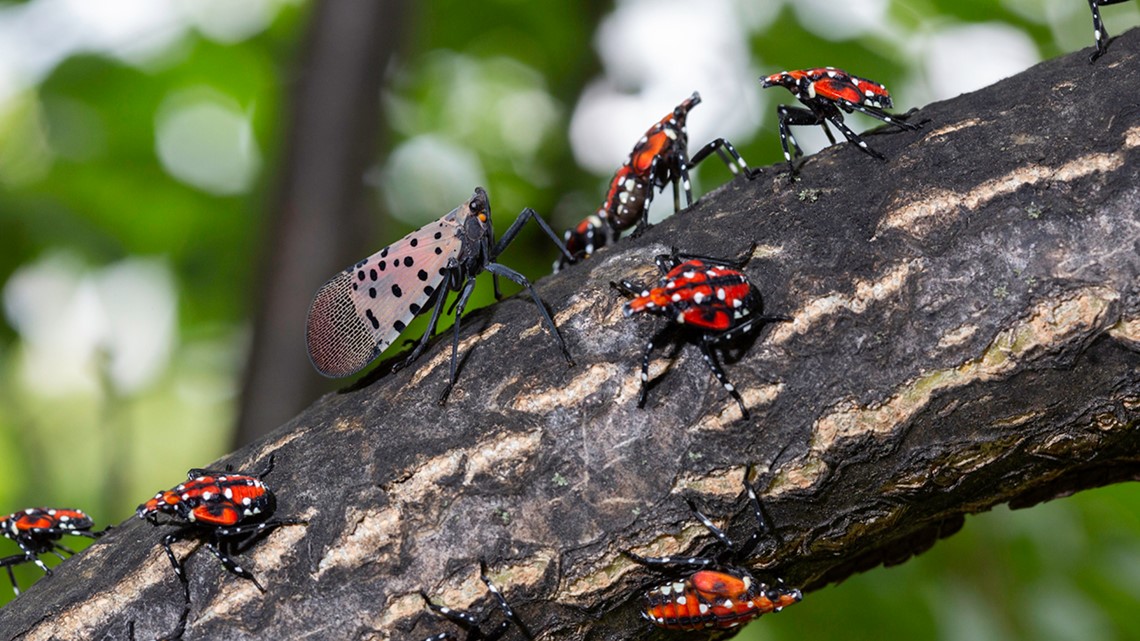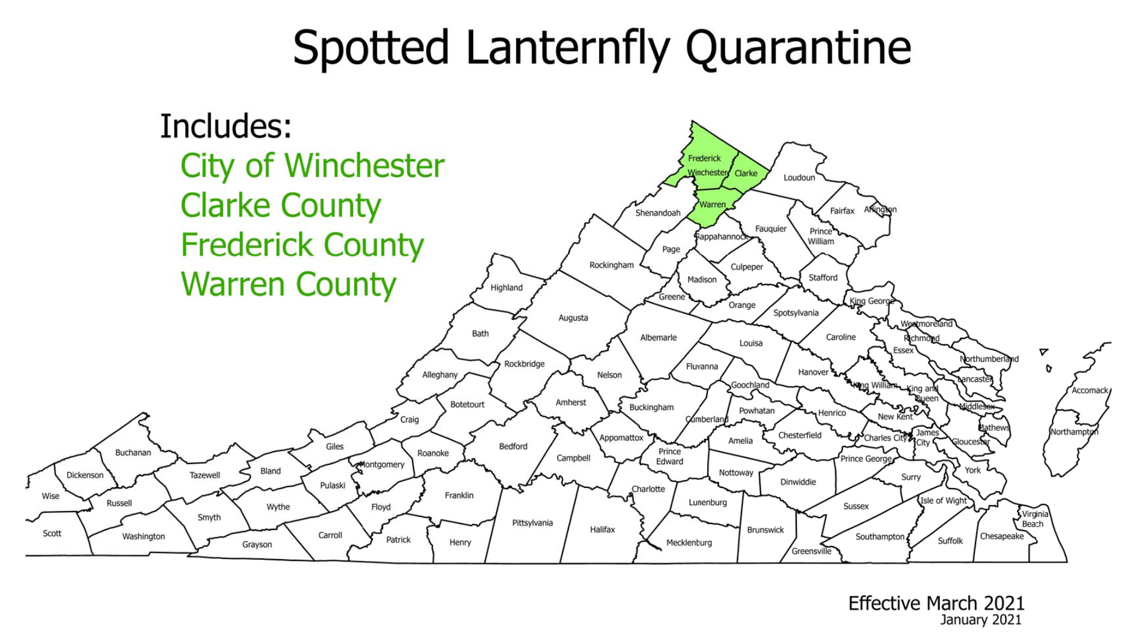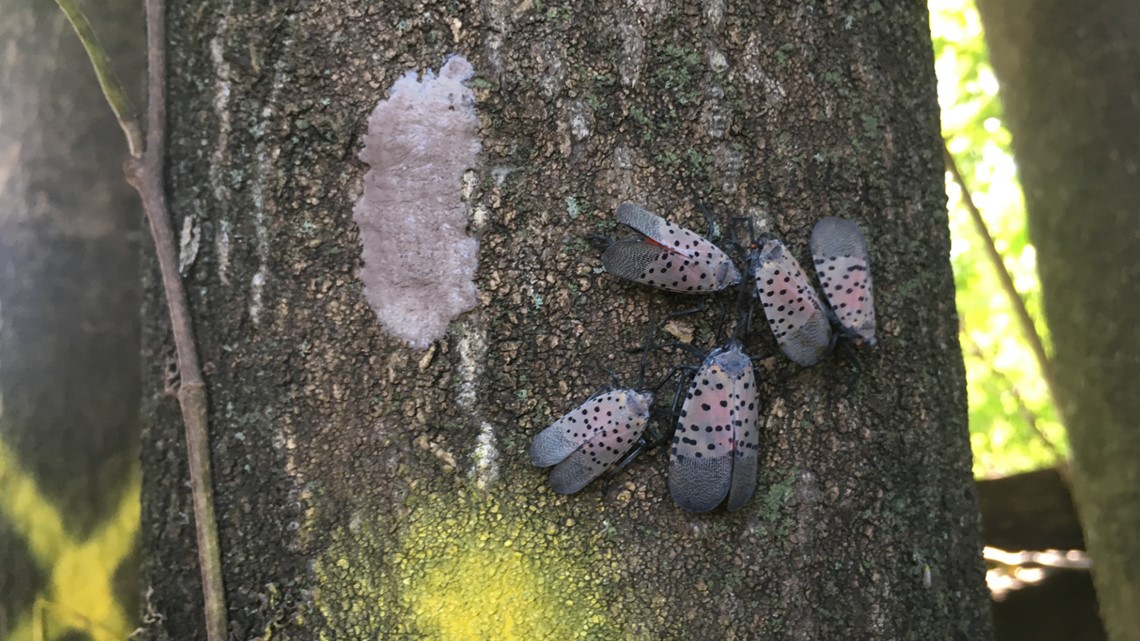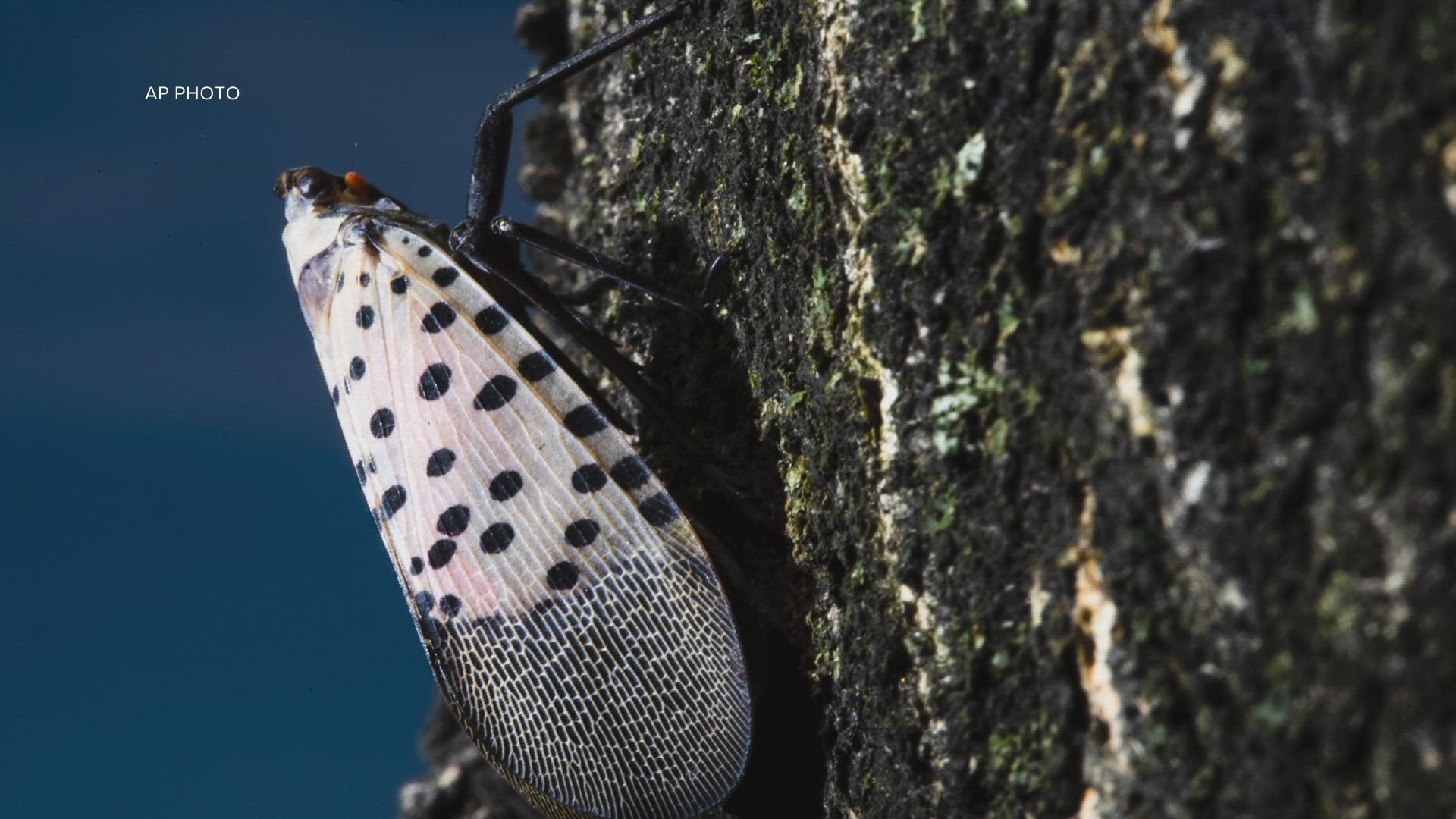WASHINGTON — An invasive insect that feeds on sap, particularly from grapevines and some fruit trees, is threatening wineries in Northern Virginia.
“In the last two weeks I’ve used a little over a gallon of spray," Paul Briede owner of Briede Family Vineyards said.
Briede surveyed the trees on his property, looking for a black, white and red pest called the 'spotted lanternfly.' Originally from Asia, the bug first appeared in Northern Virginia in 2018.
"I mean, it’s a labor of love and the last thing is you want to see is to see what you’ve planted and what you’ve achieved in growing these grapes and the wine you’ve been making – go to waste," Briede said.
About twenty miles southeast, Justin Bogaty, a winemaker at Veramar Vineyard, checks the vineyard's perimeter every week on the lookout for spotted lanternflies.
“We foresee in the next three to four years that this is going to be a major, major threat," Bogaty said. "It’s a threat now, but if we can catch them now, keep the population low, then we’re able to hold it off.”
Besides grapevines, the insects are drawn to peach, apple, walnut and hickory trees. You may also find them in backyard gardens.
So what should you do if you see one of these bugs? Are you being advised to kill them?
Our Verify researchers asked Zoe Getman-Pickering a postdoctoral scientist at The George Washington University, and David Gianino, the state plant regulatory official for Virginia.


“Their feeding habit is extreme, Gianino said. "They come in, they feed hard, and then they will come back year after year.”
In fact, right now some businesses in the city of Winchester and Frederick, Clark and Warren counties are under a “quarantine,” meaning they have to inspect uncovered, outdoor products for the spotted lantern if they plan to move product across county lines, into uninfested areas.


"They love to hitchhike and so they jump on to things like trucks, your vehicle,” Gianino said.
And as if gobbling up gardens wasn't enough, Getman-Pickering said the bugs also leave a sticky sweet residue behind that can cause problems.
"So trees that have a lot of spotted lanternflies can quickly get infested by powdery mildew, and it can also attract wasps," she said.
For all these reasons, our experts say the answer is yes, you should squash these bugs if you see them.
"It’s impact and its invasiveness is so intense that we need everybody to help us out and kill this bug,” Gianino said.
Their egg masses look like brown sludge and can be found along tree bark.
"Each egg mass could have up to 50 Spotted Lanternflies in it, and so one female can lay about five egg masses a season," Gianino said.


"If you see eggs, the best thing to do is to scrape them off into a bag and fill that bag with a little bit rubbing alcohol or hand sanitizer to kill them, zip lock it up, throw it away,” Getman-Pickering said.
If you see egg masses, nymphs or adult spotted lanternflies in Virginia you can report it through the Virginia Cooperative Extension, and if you see one in Maryland, report it through the Maryland Department of Agriculture.
Sign up for the Get Up DC newsletter: Your forecast. Your commute. Your news.
Sign up for the Capitol Breach email newsletter, delivering the latest breaking news and a roundup of the investigation into the Capitol Riots on January 6, 2021.

